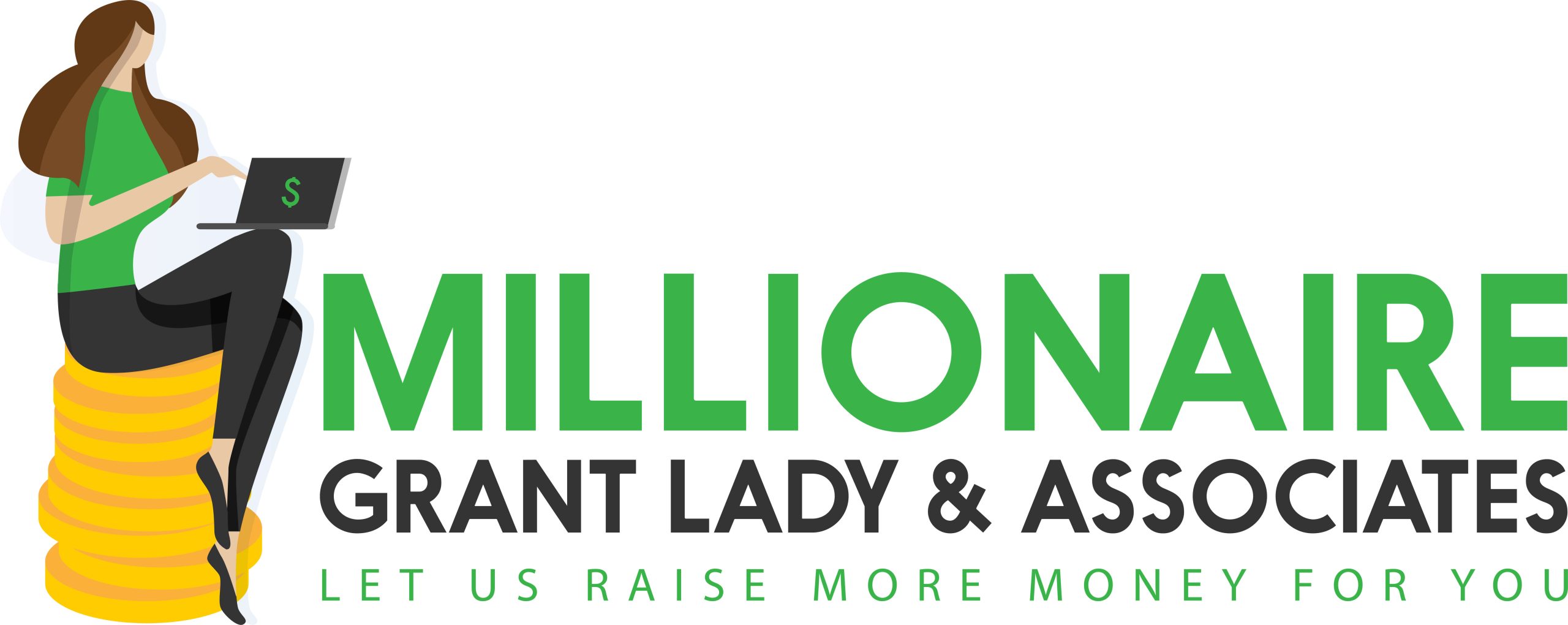A grant writer is important. According to the IRS, there are nearly 1.5 million tax-exempt nonprofits in the United States, and they all need money. Many of these nonprofits do incredibly important work, helping people and supporting causes that desperately need this help and support, especially in low-income, underserved communities across the nation and around the world. You may work for one of these nonprofits yourself, and you may be familiar with the struggle of finding the funding you need to do your important work.
The good news for nonprofits is that even in the era of extreme inflation, there are numerous indicators that grant funding is alive and well. Many foundations saw positive returns from the stock market recently, and may be looking to distribute additional funds.
The bad news for nonprofits is that grants of all kinds, from foundation to federal, are extremely competitive. No matter how worthy your cause, your application is often one of hundreds, and if you do not know how to navigate the nuances of the ever-changing grant-making processes, your application may not be given the consideration it deserves.
Because of limited resources, many nonprofits do not have the means to hire a full-time grant writer. In this situation, nonprofits may shift grant writing duties to employees who are already juggling several other roles, or nonprofits may try to hire someone part-time or temporarily to help out. If you are in this situation, you may be wondering, can anyone be a grant writer?
The Millionaire Grant Lady works to help nonprofits get the grant funding they need to succeed. To date, Alex and her team have raised more than $103 million for organizations of every shape and size, and we know what it takes not just to write grants, but to win them. Grant writing and grant winning require a specific skill set and knowledge base that no one could be reasonably expected to have without experience.
There are a few things every nonprofit should know before jumping into the grant writing process:
- Grant Writing is a Specific Skill
- Writing Isn’t Even the Half of It
- EVERY Form of Writing Is Different
- Winning Grants is a Multistep Process
- You Don’t Just Need a Grant Writer, You Need a Grant Winner
Grant Writing is a Specific Skill
All expertise is specific to a certain field.
We just finished watching the Olympics, where the greatest athletes in the world wowed us with their feats of strength, dexterity, and creativity. These people trained their entire lives for their moment to shine, and each athlete had to come through in high-pressure moments. Each athlete spent countless hours training and trying and failing and trying again before any of them set foot on the world’s biggest stage.
Can you imagine if one of those elite athletes decided the day before the opening ceremony that they wanted to switch sports? Imagine Simone Biles playing in the gold medal basketball game, or LeBron James attempting the balance beam. Not only would they look silly, but their attempts (no matter how great) would not compare to the other athletes they are competing against. Even the greatest athletes of all time have to train for their specific sport, and it would be ridiculous to expect them to pick up another without any practice.
The Millionaire Grant Lady team, led by Alex Dunn, CFRE, includes many seasoned fundraisers. Other team members have transitioned to grant writing from other careers. Each person on our team would tell you that grant writing isn’t something you can just pick up in a day. Instead, it is a skill that becomes honed with time, practice, and expert guidance.
In our work with many nonprofits, we have seen even full-time grant writers making mistakes that can hurt an organization’s chances of funding. These mistakes include using excessive industry jargon, focusing too much on minor details, failing to honor submission requirements, complicating the application process, and continually adjusting data.
If no one in your organization has spent significant time learning and practicing grant writing and growing from their own mistakes, their chances of success are going to be much lower than someone who has dedicated their career to understanding how the game works. Like all skills, being successful in grant writing requires focused practice and information acquisition.
Writing Isn’t Even the Half of It
Writing is something each of us has done—whether it was in school, for work, or for fun. All of us routinely draft emails, submit summaries, and write persuasively. Some of us—like one of the Millionaire Grant Lady Associates—may even be novelists.
But just because someone can write doesn’t mean they are a grant writer.
If you asked any of my writers how much time they actually spend writing–which here I will use the word writing to mean generating original sentences from their own brains–they would say less than 50%. Most of a grant writer’s time is spent in research, planning, and organization. A grant writer must spend time navigating portals and learning about a foundation’s grant process. They must work to reframe existing data and text to fit the specific requirements of the grant in question. No one just sits down and simply writes a grant.
While liking to write and having a natural inclination toward communication is, of course, an advantage for someone who wants to become a grant writer, most of the grant writer’s job is taking information from a dozen different places and finding a way to synthesize it into a coherent whole. To do this, you not only have to cultivate the ability to synthesize…you also have to know which dozen places you’re supposed to look. Often those places include multiple tax forms as well as various public and paid databases. Understanding how to navigate these documents and databases, memorizing the location of each piece of information, and being able to synthesize all of this information into 2,000 characters or less.
Simply put, the writing skills required for grant writing are unique to this field, and these skills must be refined with time, effort, and teaching.
EVERY Form of Writing Is Different
Often, we hear people talk about different types of writing as though they are all the same, but they are not.
Simone Biles is an amazing athlete. Currently, I am replaying her phenomenal floor routine in my mind. But we know that just because Simone Biles is an amazing gymnast, that does not necessarily make her an amazing basketball player. Could she be great at basketball? Possibly—No doubt her athleticism would help her on the basketball court, and I have no doubt that she could dunk with training! Sometimes, I think she has wings. However, she would need time, practice, and teaching to master the plays, the strategy, the moves. She would need time to become great at basketball.
Just like each sport is different and requires a different skill set, each form of writing is different.
- Writing for newspapers is a specific form of writing that has its own requirements and parameters—this skill must be learned with time, practice, and teaching.
- Writing a novel is a specific form of writing that has its own requirements and parameters—this skill must be learned with time, practice, and teaching.
- Writing for a medical journal is a specific form of writing that has its own requirements and parameters—this skill must be learned with time, practice, and teaching.
- Writing grants is a specific form of writing that has its own requirements and parameters—this skill must be learned with time, practice, and teaching.
Can each form of writing be learned? Absolutely! But, again, learning each form takes time, practice, and teaching.
Winning Grants is a Multistep Process
For someone who is very new to writing grants, they may think that it is a one step process—you sit, you write, you’re done.
But a seasoned professional knows that grant winning is a long-game. The process begins with research and often requires submitting an initial Letter of Intent. Just because you wrote the greatest Letter of Intent ever doesn’t guarantee you’ll get funding. You may have to fill out a full application, followed by a report on how you expended the funds. Additionally, foundations may ask for a site visit or other meeting. This process often takes many months.
Consistent grant winning is a year-round process, and because the majority of grant funds allow you one year to spend the funds, by the time you actually get and spend the funds, it will be time for you to start the process all over again.
A skilled grant writer must be able to manage each step at the proper time to move you closer to accessing the funding you need to support your mission-driven work.
As with anything, it does get easier the more you do it, and you will eventually streamline your process and eliminate some of your own time-wasting. But it takes a lot of work. Grant money is not free. You will pay for the labor somehow, either through your own employees or by hiring outside help, so you want to make certain that the labor is as efficient, competent, and focused as possible.
You Don’t Just Need a Grant Writer, You Need a Grant Winner
So…to answer the question, yes! Any good writer can theoretically become a grant writer. But no one is great at it immediately, and if you need funding now, you’d rather have someone who has tried and failed and learned the tricks to be successful. A seasoned professional will help you get a return on your investment. Whereas someone who’s dipping their toe into the water for the first time may do more writing than winning.
Millionaire Grant Lady has raised over $103 million for organizations all across the United States, and our writers are equipped to handle all the ins and outs of all types of grants for all types of nonprofits. If your organization needs help navigating grantmaking, book a call with me today! We are helping our organizations win gold to support their work.



